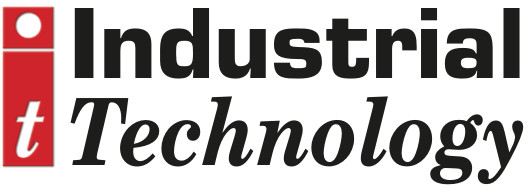
Posted to News on 31st Jan 2024, 14:30
How sustainable is drive technology?
Lukas Schmitz, sustainability manager at KEB Automation, explains what sustainability means and why companies have a special responsibility towards people and nature. He also talks about the measures that KEB has already taken and why drive technology plays a key role in promoting sustainability.

Most companies are very sensitive to the topic of sustainability. There are several reasons for this: on the one hand, customers are paying more attention to the consideration of sustainable standards. On the other hand, there is also a regulatory level, ie legal requirements that machine manufacturers must fulfil. The regulatory scope is wide and, in the worst case scenario, non-compliance can even lead to sales bans.
One of the biggest tasks for companies in this context is the collection of data on emissions of their own products. Overall, this has led to increasingly large investments being made in measures that contribute to the fulfilment of sustainability requirements.
For me, sustainability means creating a sense of responsibility towards the environment and society. You should always ask yourself what impact your own behaviour has on the environment. If you come to the conclusion that there are consequences that you didn't intend, then you have to change your behaviour.
By definition, however, sustainability is about more than just environmental issues, as it also includes social aspects. These include labour in the value chain, the treatment of employees in the company, secure pay, working hours, self-determination and much more. The third component of sustainability concerns the governance level, which includes lawful behaviour, ethical conduct, corporate responsibility and respectful treatment.
Sustainability can and should be seen as a task for society as a whole. This means that it depends on both the behaviour of private individuals and the efforts of companies. However, as a place where many people come together, companies have a role model function and at the same time a major influence on the environment and society.
Private individuals may lack the easily accessible information they need to make sustainable decisions. Here too, companies are called upon to provide information that makes it easier for end consumers to adapt their own actions if necessary. Companies are particularly well placed to promote sustainability because they can implement long-term measures in an organised manner and depending on the size of the company there are levers that can quickly have a major impact, such as saving CO2.
Raising internal awareness
It is very important that all levels in the company pull together from management to employees. If you want to raise awareness of sustainability, you have to motivate rather than reprimand. Open communication with the workforce is a good way to point out energy-saving opportunities that can be easily implemented in everyday life, for example.
In addition, of course, something can also be done by using sustainable materials in production. This can start with small things such as rags, which are used in a resource-saving manner.
E-mobility and renewable energy are good examples of where drive and automation technology has a key role to play. With the T6 APD inverter system, KEB offers a solution that can be used to electrify auxiliary units in vehicles. This makes a contribution to electromobility, which helps to save CO2.
For wind turbines, KEB also provides the COMBIVERT P6 Pitch Drive Controller, which ensures that the rotor blades are correctly aligned with the wind. In general, all KEB drives contribute to the efficient and energy-saving operation of machines and systems due to their precise and reliable speed control. Special regenerative units from KEB enable kinetic energy to be fed back into the system. These are measures in the field of drive and automation technology that definitely contribute to the energy revolution.
KEB has established an environmental and energy management system and has been standardised accordingly for both. As already mentioned, a not insignificant part of sustainability management concerns the collection of data. To this end, KEB is developing and integrating a new system that enables the management of relevant key figures for sustainability.
As the KEB headquarters is located in a water protection area, we fulfil numerous regulatory requirements for nature conservation. The decision-making processes for investment projects such as the new high-bay warehouse take emissions into account, which is why a photovoltaic system will be installed here in the future. And of course, light sources have also been replaced with energy-saving lamps. Our service department also makes an important contribution to the circular economy with offers such as as good as new'.
KEB is very well positioned in terms of sustainability. Nevertheless, we are planning to refurbish the office towers and equip them with modern heat pumps. We are also preparing a sustainability report that will document the efficient use of resources, the increasing avoidance of waste and measures to reduce greenhouse gases, among other things. We are orientated towards the 1.5 degree target and will align our efforts accordingly. To this end, suppliers are being analysed in order to ensure greater sustainability at this level too.







